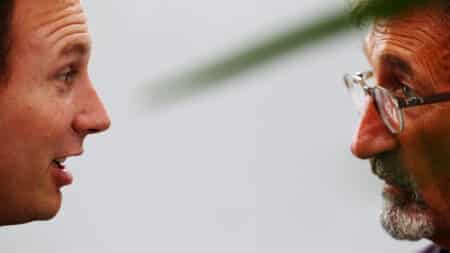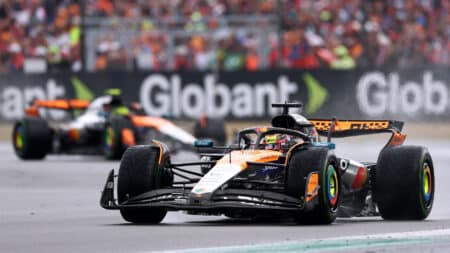
Horner's departure shows age of the maverick F1 boss is over
Christian Horner has now left Red Bull, the last of a certain breed of F1 team principal
A landmark moment for British motor sports
After a marathon campaign spanning successive governments, the Motor Sports Association (MSA) has finally secured a change to British law, which will make it easier for closed-road motor sport events to take place in mainland Britain.
Coming into force on Monday, new legislation will allow local authorities to suspend the Road Traffic Act to host a motor sport event without requiring an Act of Parliament.
City-based rally special stages through to major international race series can now be hosted at the discretion of local authorities and governing bodies, in what the MSA describes as ‘one of the biggest developments in the history of UK motor sport’.
For Ben Taylor, managing director of International Motor Sports, the change presents the opportunity to bring motor sport to new audiences.
“This is the culmination of multiple campaigns with successive governments, the latest starting in 2010,” Taylor explained. “A lot of people thought this was never going to happen, so it’s really exciting that this is now a reality.
“This was all about changing the law so that the rest of the UK is on a level footing with mainland Europe, Northern Ireland, the Channel Islands and the Isle of Man. The opportunity now exists to do the same kind of thing that they’ve been doing for a number of years and reaping the benefits of that.
“For the sport, this is about taking motor racing to new audiences, new people and getting them excited about this fantastic sport.”
Pressed on what sort of events mainland Britain can expect to see over the coming years, Ben Taylor was optimistic but candid about the opportunities that the new legislation facilitates.
“The exciting thing about this legislation is that it is as applicable to a small hillclimb in a rural village as it is to a major international race series in a major city. This is all about giving people the opportunity to do something, rather than specifying what it is that they are going to do.
“I expect that we will now see more hillclimbs in rural environments, rally stages coming out of the forests and into towns for a super special stage, and ultimately you may well see some race series having a look at cities around the UK to see if they can put some infrastructure together to make it happen.
“It’s an expensive operation and it’s a hugely time and resource-consuming project to make a temporary race circuit out of a street. It will have to be commercially viable for whoever is going to do it. So I think that will be the limiting factor now, rather than the legislation. That’s where we wanted to get to.”
Organisers of Formula E were amongst those most enthusiastic about the new legislation.
“This move considerably helps the prospect of the London ePrix returning to the streets of the British capital,” they commented.
Attracting new audiences to the sport has been a challenge for organising bodies in recent years, but the new legislation allows event promoters to take the sport to the people.
“It starts with an event promoter, who puts together a plan for their event or stage and then they talk to the governing body about it,” explains Ben Taylor.
“What we didn’t want was local authorities inundated with dreamers and idiots who didn’t know what they were doing! That would be wasting public authority time. So the first cut is with the national governing body and then they can talk to the local authorities.”
Independent research commissioned by the MSA found that up to £40m could be generated for local communities across Britain by hosting a limited number of closed-road motor sport events. Such benefits made the government’s decision straightforward, Transport Minister Andrew Jones MP told Motor Sport.
“We want to build upon the success that we have already had. The motor sport industry contributes £10bn into our economy and employs 45,000 people. Local authorities have seen the opportunities for economic growth.
“An example has been set by motor sports around the world, and at home with the way we organised the Tour de France Grand Départ a couple of years ago in Yorkshire. How many people came out to see that? It had a huge impact upon the economy.”
Although Formula 1 is most likely not on its way to London, the new legislation is a seismic change for British motor sport, enabling organisers to bring the sport to new audiences in new formats and in new locations.
The ultimate outcome of the MSA’s long campaign will be clear in time and until then, fans can only speculate about the possibilities.
The return of the Birmingham Superprix, anyone?

Christian Horner has now left Red Bull, the last of a certain breed of F1 team principal

Was Oscar Piastri the real winner in the long run after Silverstone? asks James Elson

Lewis Hamilton hadn't won in almost three years – and then produced a sensational victory at Silverstone 2024. James Elson explains why it was his best ever

Describing this year's championship race as a 'battle' might be slightly over-egging it, writes James Elson